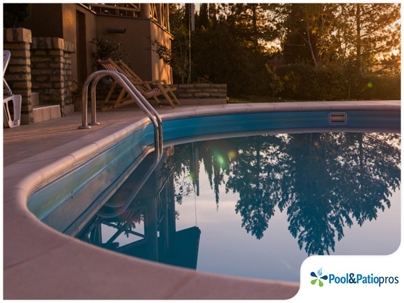Have you noticed lately that your pool is losing water? Pool leaks can occur for various reasons, including issues with the filter system and cracks in the underground piping. However, it could also just be that your pool is losing water due to evaporation. If you believe that your pool has leaks, it’s best to have it checked by a local pool repair expert.
Here are signs your pool is leaking and tips on how you can locate the source of the problem.
What Causes Pools to Leak?
While pools may look simple, they have various components that are made to keep them watertight. Over the years, the seals in the pool could deteriorate and shift. The ground on which the pool is built could also start to settle. The most common cause of leaks in pools is plumbing issues. They can also leak through light fixtures and the shell or liner.
Pool maintenance is key to preventing problems with your pool. With regular maintenance, professionals can find leaks while they are small. Addressing leaks as soon as possible will not only save you on utility costs but also help in keeping the structure of the pool in good shape.
Signs Your Pool Has Leaks
There Are Wet Spots in Your Yard
Check the areas around your pool for soft spots and uneven grass growth. If they are present, you could be dealing with a plumbing leak. Water movement underground can cause erosion, resulting in the shifting and sinking of the landscaping.
Your Water Bills Are Increasing
An obvious sign that your pool is leaking is an increase in your water bills. Many times, automatic fill devices can make it harder for you to notice that your pool has leaks. Consider having your pool checked by a professional for leaks if the autofill is running constantly or if your water bill is increasing.
There Are Changes in the Water Level
The most common sign of pool leaks is a drop in the water level. Still, you should determine if the loss of water is not due to evaporation. Water can evaporate easily depending on the wind, air, humidity, and temperature. Moreover, significant water loss is a strong indication of pool leaks. It’s a good idea to have your pool checked by a pool maintenance or repair professional if you notice a big change in the water level.
There Are Cracks on the Tile
Excessive amounts of water can cause unsettling in the ground surrounding your pool. Cracks and tile movements can occur if your pool is leaking. Gaps and cracks can develop in the bond beam as your pool settles farther into the unsettled ground.
You’ve Noticed That There Is Dirt Being Blown Into the Pool
A leak can pull air and dirt into the plumbing system. When your pool leaks, it’s possible for the dirt and air to be blown into the pool from the returns. Your pool is likely leaking if you hear odd gurgling sounds coming from it.
There Is Water Under the Equipment
You’ll know your pool is leaking if there is standing water or corrosion around the pipes. Leaks on the equipment can be easily spotted through a visual inspection.
The Presence of Algae
Constantly adding untreated water to a leaking pool can result in changing chemical consumption and discoloration or algae growth. Pool repair may be the better fix for this issue instead of continuing to treat the water.
How Do You Detect Leaks?
Ink Method
The ink method is one of the easiest ways to detect a pool leak. For this test, you’ll need leak-proof, anti-fog goggles, a snorkel, and leak finder dye or dark food coloring. Inspect the ground and walls around the pool for wetness as it will help you determine the area of the leak. The height of the leak is where the water stopped. You’ll know its area because the pool wall or ground will be wet.
Continue to narrow down before using the dye. When you think you’ve found the possible location of the leak, jump into the pool, and use the dye to confirm if you’re right. Slowly move to the area where you believe the leak is. Spatter the dye in the water near the wall. The dye will move in the direction of the leak source if the leak is near the location. Once you find the source, the next step is to address the problem, and that’s when you’ll need to hire a professional. For your pool resurfacing and repair needs, turn to Pool and Patio Pros.
Bucket Method
Another method you can use to locate leaks is the bucket method. You’ll only need a five-gallon plastic bucket and a king-size black marker or duct tape. First, take your bucket into the water on the second step of the pool. Fill it with water that matches the pool’s water level. Then, use the marker or duct tape to mark the water level inside the bucket.
Next, turn off the recirculating pump and any other auto-refill device you may have. The next thing to do is to wait for 24 hours and compare the water level of the pool to the water level in the bucket. Don’t worry if both the pool and bucket water have less water. It simply means that the water loss is due to evaporation. However, if the pool water is significantly lower than what’s in the bucket, there’s a huge chance that there’s a leak.
To help determine the source of the leak, do the test one more time, but with the pump turned on. The leak is likely around the pool’s plumbing if the water level in the pool is greater than what’s circulating under pressure.
Think your pool is leaking? Contact Pool and Patio Pros to schedule an inspection. We offer weekly pool service, pool resurfacing, and repairs. Our experienced team also repairs pumps, filters lighting, plumbing, salt systems, and timers.

